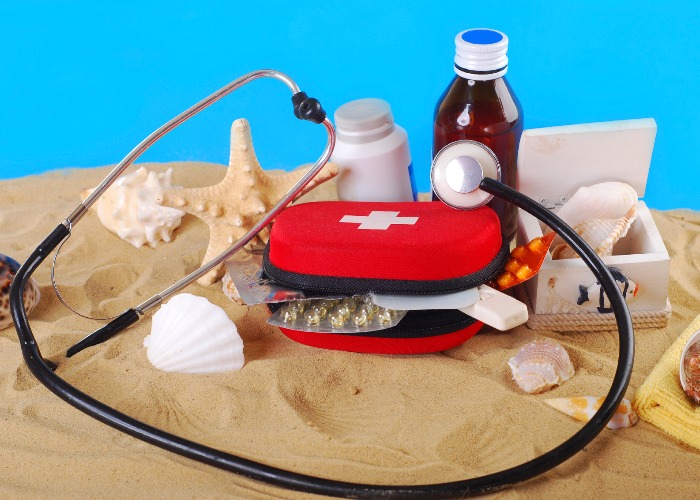Holiday accidents costing victims more than £250 each

Injuries incur a £1.1 billion cost over three years
Nearly 40% of UK tourists suffered an injury during holidays abroad in the past three years, according to Post Office Money.
Slips, trips, sunburn, stings and more have contributed to a cumulative bill of £1.1 billion, which worked out an average cost of over £250 each.
The most common accidents
Animal and insect bites, along with jellyfish and stingray stings, were the most reported incidents, experienced by a quarter of those injured abroad. Treatment for these bites and stings cost an average of £47.
The price sharply rose to an average of £118 for the 14% who experienced severe sunburn or sunstroke requiring medical treatment, £121 for a rental scooter or motorbike accident, and £150 for a bathroom fall.
A further 14% suffered from food poisoning while on holiday. It’s easy to let your guard down and take risks on food after treating yourself to a holiday beer or two, but if something looks suspect, steer well clear to make sure the rest of your holiday is enjoyable.
Planning a trip abroad? Get a travel insurance quote in minutes
Paying over the odds
While the costs associated with a sting or bite might not completely ruin your holiday, unfortunately there’s always the chance of a more serious injury, or an unexpectedly high bill for treatment.
You should also remember that depending on where you are in the world, the costs of medical care can vary dramatically: the USA is one example of a country where it costs far more than you might expect.
The Post Office Travel Insurance says that it found an example where a sunburn sufferer paid out around £1,500 for treatment, and multiple accidents cost some people up to £7,500.
You don’t have to be accident prone, just unlucky. Which is why it’s so important to have travel insurance when going on holiday - no one wants to get hurt, but they want the cover there if they do.
If you’re travelling within the European Economic Area (EEA), you should also make sure you have a European Health Insurance Card (EHIC) which entitles you to the same level of healthcare as citizens of the country you’re visiting.
Find out more about the European Health Insurance Card
Travel insurance policy
Even if you’re travelling within the EEA, your EHIC may not cover the entire cost of your treatment, and it does not cover private medical healthcare at all. Nick Kennett, Post Office Director of Financial Services pointed out that there have been well publicised cases where the EHIC card has been refused, particularly in Spain.
So you need a travel insurance policy and an EHIC in Europe. You might think it’s not worth having an EHIC if you take out a policy, but many insurers will waive the excess fee if the treatment is discounted as a result of its use. So your treatment will be fully covered, and you will be fully reimbursed for any payments you initially have to make.
Planning a trip abroad? Get a travel insurance quote in minutes
More from loveMONEY:
What you need to know if you're going to Greece
Comments
Be the first to comment
Do you want to comment on this article? You need to be signed in for this feature